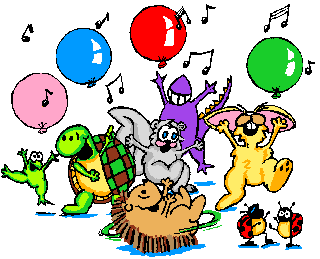Beginnings, or the oft-used redundant phrase “new beginnings” holds the promise of the future, or so we’d like to think. We all fall prey. For many it takes the form of New Year resolutions. For me, the craziness crescendos in December when I catalog all those things that I’ve been meaning to do and now ‘must do’ before the year ends. I spend most of the last month in a mad rush trying to tie-up all of all those loose ends and never succeed. It’s not that I’m disorganized, I do have lists, and they are highly categorized and prioritized. But, as the saying goes, “life gets in the way.” And it strikes me, year after year, that there is something profoundly wrong with the very notion that ‘life gets in the way.”
Life is the way, or so the magnet on my refrigerator tells me:
Every day is a gift. That’s why it’s called the Present.
Perhaps it’s paraphrase from the quote attributed to Babatunde Olatunjia the Nigerian drummer, educator, social activist and recording artist:
Yesterday is history. Tomorrow is a mystery. And today? Today is a gift. That’s why we call it the present.
Anyway, here is a sampling of some of the things that I did not get done in he past:
* put away my summer clothes
* finish the blog journal of November’s cruise
* write reviews (or, more accurately for me, my impressions) of the pile of CDs sent to me, unsolicited, by hopeful publicists and artists seeking exposure
* work those the Linked-In connections
* follow-up on pitch letters to agents and publishers
* send out Christmas cards
* enter writing contests and submit pieces to literary journals
We all know that we are powerless. How do we know? Well there’s that old, supposedly Yiddish, proverb, “We Plan, God Laughs.†I say supposedly because I’ve seen evidence of it’s multicultural and multidenominational use — by a Baptist minister and a female reverend’s easter sermon to name just two. It’s derivation is likely the Biblical verse found in Psalm 33:10:
“The LORD brings the counsel of the nations to nothing; he frustrates the plans of the peoples.”
But, nevertheless. we continue to make plans.
These are not new thoughts to me, and I’ve said as much before. On October 3rd in my Now, In A Million Years post I mentioned an interest in Zen or Buddhist philosophy. I have yet to find time to take a class, but I have done a little more research and my six New Year resolutions are based on the Noble Eightfold Path of Buddhism (“the way to the cessation of suffering”)
1. To speak truthfully, without exaggerations, and never hurtfully.
2. Avoid any and all harmful actions
3. Ensure that my livelihood does no harm, to myself or to others; directly or indirectly.
4. Make an effort to improve
5. Focus on seeing things for what they are and with clear consciousness
6. Be more aware of the present, internal and external, and accept it. (No more wishing it were otherwise.)
If you’re wondering why six and not all eight, it’s because the last two (Right Understanding and Right Thoughts) are still too abstract for me. Here’s a Wikipedia link for those who are curious.
To quote another refrigerator magnet, “Life’s a journey. not a destination.” Perhaps you recognize that thought from your own refrigerator magnet collection, or from Aerosmith’s lyrics to Amazing. Or maybe you recall the words of Aldous Huxley:
The spiritual journey does not consist in arriving at a new destination where a person gains what he did not have, or becomes what he is not. It consists in the dissipation of one’s own ignorance concerning one’s self and life, and the gradual growth of that understanding which begins the spiritual awakening.
I came across a number of other apropos quotations; here are a few:
If you wait for tomorrow, tomorrow comes. If you don’t wait for tomorrow, tomorrow comes. ~Senegalese Proverb
One of the most tragic things I know about human nature is that all of us tend to put off living. We are all dreaming of some magical rose garden over the horizon – instead of enjoying the roses that are blooming outside our windows today. ~Dale Carnegie
We are always getting ready to live but never living. ~Ralph Waldo Emerson
Let us not look back in anger, nor forward in fear, but around in awareness. ~James Thurber
So today I begin my quest. I can’t bring peace to the world, but I can bring peace to myself. It’s too late to send out Christmas cards and there’s no point in putting those clothes away when I’ll just have to take them out again in a couple of months. I’ll start this year by simply deleting items from the list. Hmmm, maybe I can just delete the list itself.
Wishing you all peace and serenity in the New Year.

 I share today with Sarah ‘Fergie’ Ferguson, Duchess of York (1959), chef Emeril Lagasse (1959), director Penny Marshall (1942, and yes, I remember when she was an actress), Linda Lavin (1937, also an actress), businessman Lee Iacocca (1924), novelist Mario Puzo (1920), Arthur Schlesinger, Jr. historian (1917), economist John Kenneth Galbraith (1908), writer PG Wodehouse (1881), philosopher Friedrich Nietzsche (1844), and poet Virgil (read The Aeneid in high school; 70 BC – Virgil’s dob, not my year in high-school), to name just a few.
I share today with Sarah ‘Fergie’ Ferguson, Duchess of York (1959), chef Emeril Lagasse (1959), director Penny Marshall (1942, and yes, I remember when she was an actress), Linda Lavin (1937, also an actress), businessman Lee Iacocca (1924), novelist Mario Puzo (1920), Arthur Schlesinger, Jr. historian (1917), economist John Kenneth Galbraith (1908), writer PG Wodehouse (1881), philosopher Friedrich Nietzsche (1844), and poet Virgil (read The Aeneid in high school; 70 BC – Virgil’s dob, not my year in high-school), to name just a few.